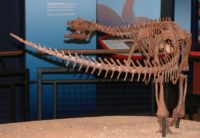By Sarah Chaffee On this episode of ID the Future, host Robert Crowther talks with Rachel Adams, special projects coordinator at Discovery Institute’s Center for Science and Culture, about Thanos, the arch-villain from the Marvel blockbuster Avengers: Infinity War, and a couple of real-life thinkers, Eric Pianka and Paul Ehrlich, who share the villain’s view that the world would be a better place with far fewer humans. Thanos, Pianka, and Ehrlich appear to share a materialistic view of the human person, one that ignores the inherent dignity and worth of every person as well as humanity’s capacity to create solutions [More]
By Sarah Chaffee In this episode of ID the Future from the vault, Jay Richards interviews Jonathan Witt about Witt’s book, co-authored with William Dembski, titled Intelligent Design Uncensored. What is ID? Why is it controversial? This book breaks down the science of intelligent design into easy to understand terms and looks at other key cultural questions. Read a full review of the book here. In addition to discussing the book itself, Richards and Witt reveal autobiographical details of how they got involved with intelligent design. Please consider donating to support the IDTF Podcast. SaveSave …read more Source: id the [More]
By Creation Moments God was not pleased with the people of Babel when they wanted to build a city and a tower with its top in the heavens. This is because their aim of preventing their own dispersal throughout the world was in contravention of God’s command, and their intention to make a name for themselves is opposite to our commitment to seek God’s glory. read more …read more Source: Creation Moments
By Sarah Chaffee In this episode of ID the Future, Mike Keas interviews attorney and engineer Eric Anderson about the first of two mistakes ID antagonists often make regarding information in nature. There is information to be gained about natural phenomena, like Saturn’s rings for example, but is there information actually in Saturn’s rings, or is that information produced by intelligent agents studying Saturn’s rings? The answer to that question should be clear — and it makes a huge difference in how we understand information and intelligence. Please consider donating to support the IDTF Podcast. SaveSave …read more Source: id [More]
By Creation Moments In a previous Creation Moment, we saw how people often do not want hygienic teaching. The Greek word translated “sound”, in the phrase “sound teaching”, is actually hugiano, from which we derive our word hygienic. read more …read more Source: Creation Moments
By Creation Moments The Apostle Paul wrote: “All Scripture is breathed out by God.” Some versions have: “All scripture is given by inspiration of God.” This means the same thing because the word inspiration has changed its meaning somewhat over the centuries. Colloquially, we remark that a brilliant inventor had an inspired idea, but that is not really what is meant by inspiration in this context. read more …read more Source: Creation Moments
By Creation Moments Perhaps you played the telephone game at children’s parties. The participants are seated in a line, or maybe a ring. One person starts by whispering a phrase to his or her neighbor. That neighbor whispers the message to the next person. Eventually, the message has gone around the room. But when the final person speaks the message out loud, it usually does not bear too much resemblance to the original. read more …read more Source: Creation Moments
By Creation Moments “How can you possibly believe the Bible to be inerrant?” the argument goes. “We don’t even have the originals. The originals might be different from the Bible we have today.” This is a common enough argument against inerrancy but is born out of a misunderstanding about the nature of original documents. read more …read more Source: Creation Moments
By Creation Moments “The time is coming,” said the Apostle Paul to his young protegé, Timothy, “when people will not endure sound teaching.” read more …read more Source: Creation Moments
By Sarah Chaffee On this episode of ID the Future, philosopher Jay Richards continues his conversation with host and historian of science Mike Keas about Henry Kissinger’s recent Atlantic article on “The End of the Enlightenment.” In the piece, Kissinger sounds an alarm over artificial intelligence, and raises questions about machine ethics and the possibility that humans may learn we’re not so special after all. Richards, author of the new book The Human Advantage: The Future of American Work In an Age of Smart Machines, pushes back, explaining how we can continue to use artificial intelligence to our advantage, prudently [More]
By Sarah Chaffee On this episode of ID the Future, Jay Richards talks with host Mike Keas about a recent Atlantic article from former National Security Advisor Henry A. Kissinger on “How the Enlightenment Ends” with the rise of artificial intelligence. Richards, whose forthcoming book The Human Advantage: The Future of American Work In an Age of Smart Machines, covers this territory and more, explains that AI is about statistical processing, not budding consciousness; and the ethical concerns it raises are both important yet in some ways not so new. Please consider donating to support the IDTF Podcast.
By Creation Moments A recent report in the journal Science has reached the startling conclusion that human brains and chimp brains are entirely different. A study led by scientists at Yale University has discovered that much of the gene activity in the human brain is completely alien to that occurring in the brains of chimpanzees. read more …read more Source: Creation Moments
By Creation Moments Recently, a schoolteacher from a government school in England was suspended for referring to a child by the wrong gender pronoun. The pronouns used to be he or she. Now there is a bewildering number of other pronouns, such as per, ve, xe, ze, and many more. These are designed to indicate various levels of masculinity or femininity depending on how the user defines themselves. read more …read more Source: Creation Moments
By Creation Moments In a previous Creation Moment, I referred to the Cassini space program studying Enceladus – a moon of Saturn. Two interesting new studies about ocean-covered worlds like Enceladus have recently been published, giving conflicting information. read more …read more Source: Creation Moments
By Creation Moments Sometimes, when I have seen beautiful works of visual art, I have felt a pang of jealousy, wishing I was able to paint or to draw as well as that. Then God reminds me that He gave me gifts in another art form. As long as I can remember, music has been a part of my life, both in performance and in composition. read more …read more Source: Creation Moments
By Sarah Chaffee On this ID the Future episode from the vault, Dr. Stephen Meyer debates Michael Shermer on Lee Strobel’s show, Faith under Fire. The debate ranges from anthropic fine-tuning to DNA and the metaphysical implications of either worldview. Please consider donating to support the IDTF Podcast. Your browser does not support playing Audio, please upgrade your browser or find our podcast on podOmatic Download Episode …read more Source: id the future
By Creation Moments The concept of flying has inspired so much in the way of art – visual, musical, and literary. “One day, I’ll fly away,” sang Randy Crawford, evoking a view of flying as a metaphor for freedom. Other songs have taken up the same theme. “You are the wind beneath my wings”. “Love lift us up where we belong”. “Come fly with me, come fly, let’s fly away”. read more …read more Source: Creation Moments
By Creation Moments A young pastor wrote this on Facebook: “If God is not bigger than your Bible, then your Bible is God.” read more …read more Source: Creation Moments
By Sarah Chaffee On this episode of ID the Future from the vault, Jay Richards interviews Discovery Institute Senior Fellow Benjamin Wiker on his book, 10 Books Every Conservative Must Read: Plus Four Not to Miss and One Impostor. Listen in as they examine the role of materialism in politics, particularly in C. S. Lewis’s prophetic book, The Abolition of Man, and Wiker explains how moral argument has been replaced by technological manipulation of human nature. Please consider donating to support the IDTF Podcast. Your browser does not support playing Audio, please upgrade your browser or find our podcast …read [More]
By Creation Moments Evolutionary anthropologists like to divide human beings into different racial groups. These so-called races are defined by distinctives such as eye shape or skin color. read more …read more Source: Creation Moments
By Creation Moments It was Charles Darwin’s assumption that new species arose from previous ones by a process of natural selection. Darwin famously illustrated this point by reference to the various species of finch living on the Galapagos Islands. read more …read more Source: Creation Moments
By Creation Moments It was the late Stephen J. Gould who popularized the idea of Evolution by Punctuated Equilibrium. This was because he noticed the lack of transitional forms in the fossil record, which is so obvious to those who want to see. Yet, as a committed evolutionist, Gould could not bring himself to the natural corollary of his ideas – that the theory of evolution is just not tenable. read more …read more Source: Creation Moments
By Creation Moments Anthropology is the study of human beings and where they came from. As a scientific discipline, it has been led for decades by people with evolutionary presuppositions. There are many people within Christian churches – including many pastors – who do not think it matters what we believe about how human beings got here. What matters is the value that we place on humanity today. read more …read more Source: Creation Moments
By Sarah Chaffee On this episode of ID the Future, philosopher Logan Gage speaks with Sarah Chaffee about the new book Aquinas and Evolution by Fr. Michael Chaberek. Philosophers in the tradition of Thomas Aquinas — Thomistic evolutionists — have pressured Intelligent Design theorists, saying that it gets Aquinas wrong, in fact it even gets God wrong. Dr. Gage says Fr. Chaberek’s book counters that pressure and shows how “Thomistic” evolution contradicts Aquinas. Please consider donating to support the IDTF Podcast. Your browser does not support playing Audio, please upgrade your browser or find our podcast on podOmatic Download …read [More]
The conventional understanding has always been that North America was populated by people who crossed from Asia to Alaska via the Bering Strait and then migrated down the West Coast. Eventually, some of them crossed as far as the eastern coasts of North and South America. Known as the Clovis culture, their descendants produced all the North and South American Indian tribes and nations. read more …read more Source: Creation Moments
Dinosaur fossil hunters and paleontologists have long debated whether dinosaurs were warm-blooded or cold-blooded. With reptile characteristics, it was expected that dinosaurs would be cold-blooded. Yet, some evidence indicated that they must have been warm-blooded. read more …read more Source: Creation Moments
By Sarah Chaffee On this episode of ID the Future, physician Howard Glicksman explains the hugely complex blood flow systems required to keep us clear-headed and alive even while doing everything from gymnastics to simply getting up in the morning. There are various methods the heart and blood vessels use to keep the body properly supplied. It’s also about hormones and nervous-system signaling. Does Darwinism provide a satisfactory explanation for such an intricately coordinated system? Dr. Glicksman argues that it does not, and that a far better explanation is intelligent design. Please consider donating to support the IDTF Podcast. Your [More]





































